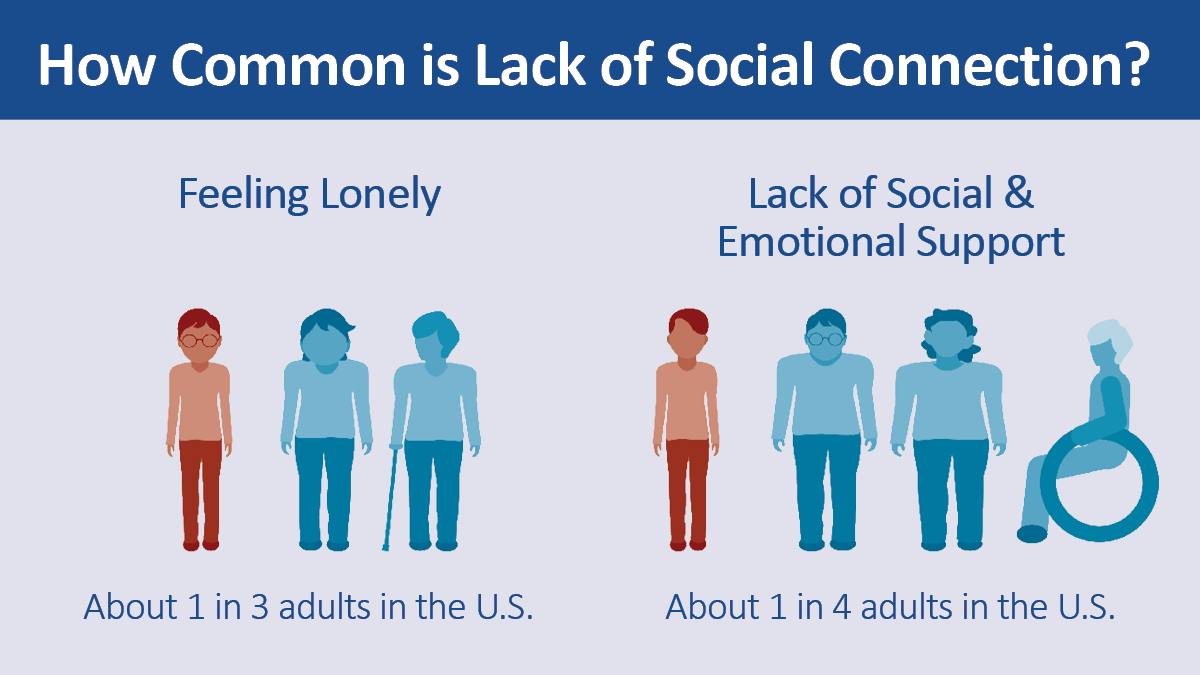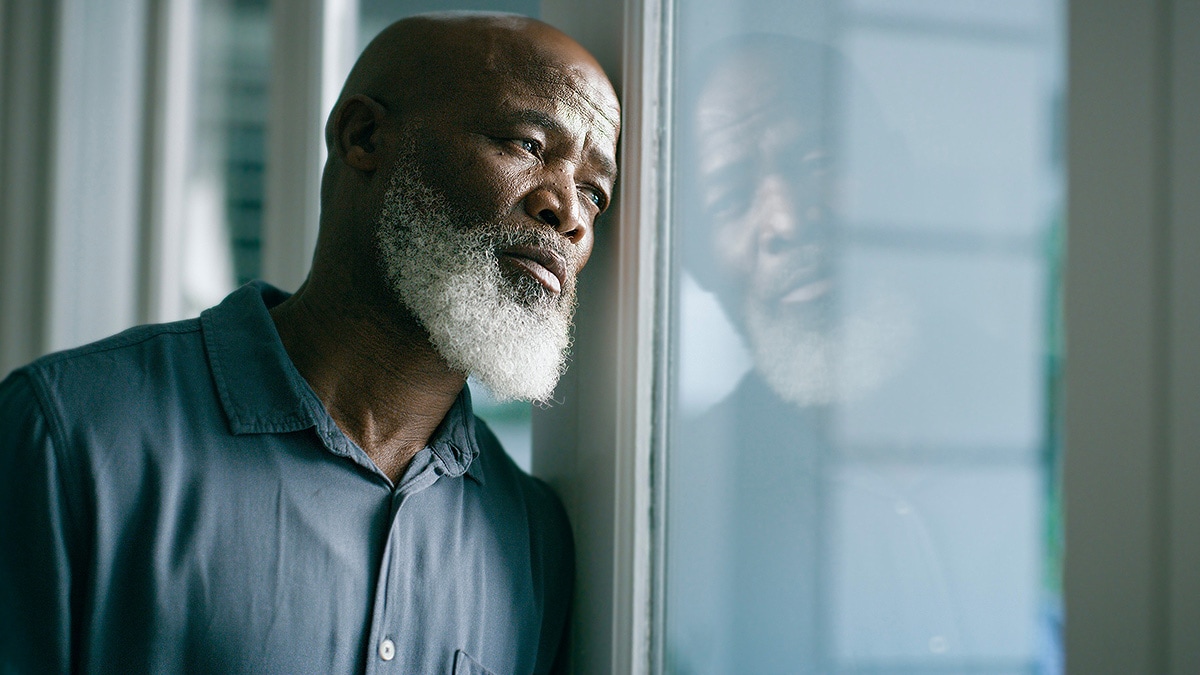Key points
- Social isolation is not having relationships, contact with, or support from others.
- Loneliness is the feeling of being alone, disconnected, or not close to others.
- Social isolation and loneliness put a person at risk of developing serious mental and physical health conditions.

Overview
Social isolation and loneliness are widespread problems in the U.S., posing a serious threat to our mental and physical health.
- About 1 in 3 adults in the U.S. report feeling lonely.A1
- About 1 in 4 U.S. adults report not having social and emotional support.A1

Social isolation is when a person does not have relationships or contact with others and has little to no social support.
- Social isolation can pose a health risk to people, even if they don't feel lonely.
Loneliness is feeling alone or disconnected from others. It is feeling like you do not have meaningful or close relationships or a sense of belonging. It reflects the difference between a person's actual and desired level of connection.
- Even a person with a lot of friends can feel lonely.
Risk factors for individuals and groups
Individual risk factors
Certain conditions or experiences may increase a person's risk of social isolation and loneliness. These include:
- Having a mental or physical challenge, such as a:
- Chronic disease or condition.
- Psychiatric or depressive condition.
- Long-term disability.
- Chronic disease or condition.
- Being marginalized or discriminated against.
- Having limited or no access to resources, such as:
- Living in rural areas.
- Limited transportation.
- Language barriers.
- Living in rural areas.
- Being a victim of violence or abuse.
- Facing a divorce, unemployment, or the loss of a loved one.

Group risk factors
Loneliness may impact some groups more than others, such as:
- Low-income adults.
- Young adults.
- Older adults.
- Adults living alone.
- Immigrants.
- People who identify as gay, lesbian or bisexual.
- The report included data from 39 states, District of Columbia, Puerto Rico, and U.S. Virgin Islands.
- Town M, Eke P, Zhao G, et al. Racial and ethnic differences in social determinants of health and health-related social needs among adults — Behavioral Risk Factor Surveillance System, United States, 2022. MMWR Morb Mortal Wkly Rep. 2024;73(9):204–208.
